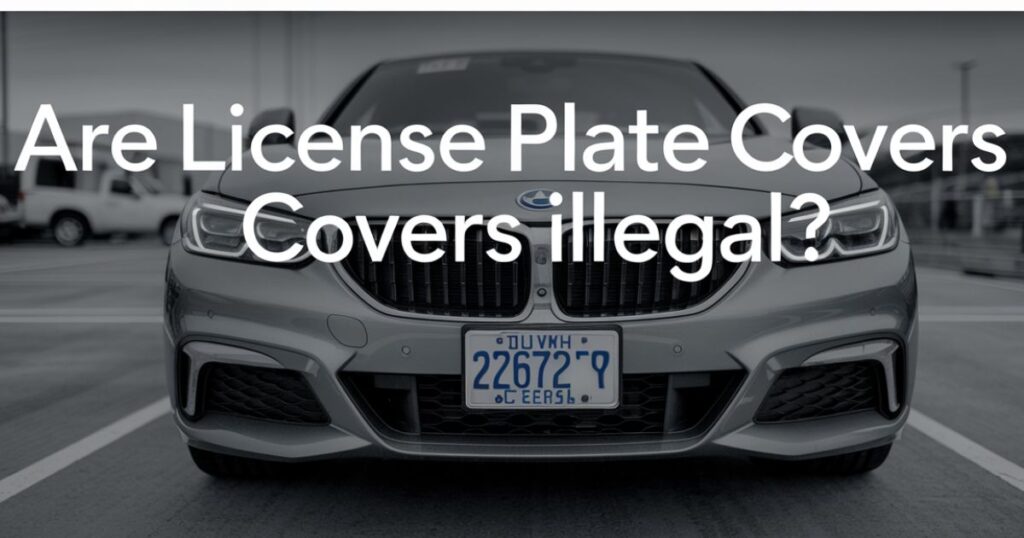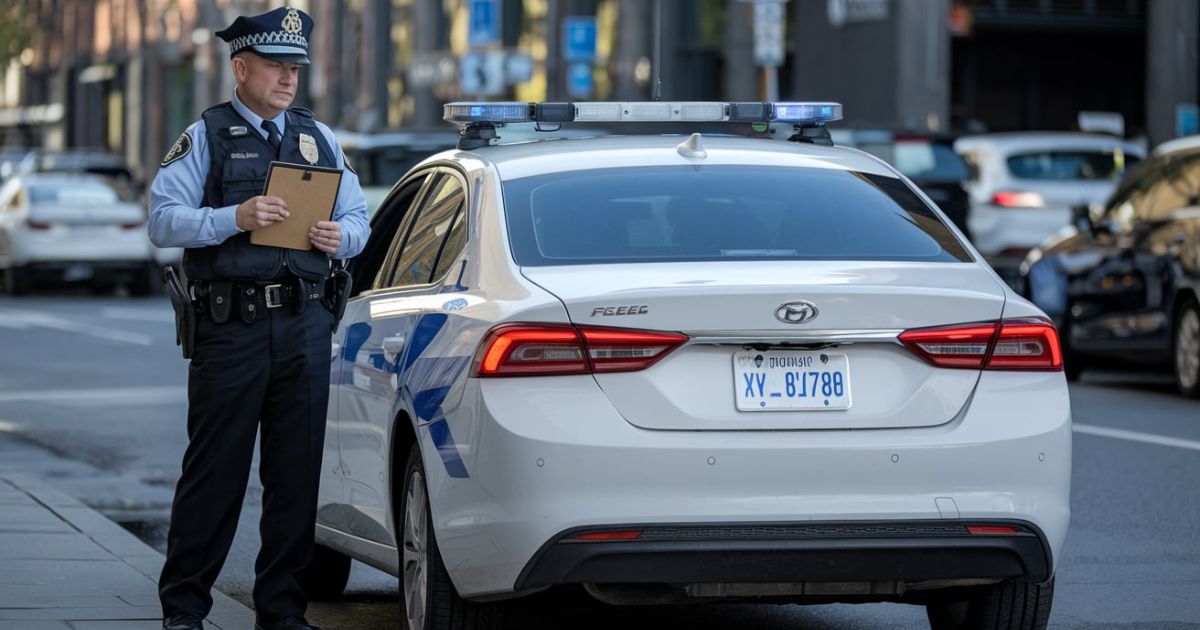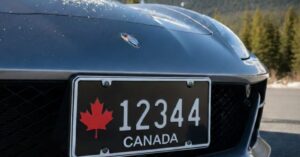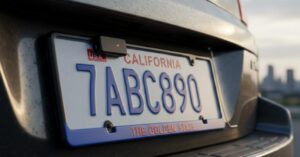License plate covers in Washington, D.C., can be illegal if they obstruct visibility. Clear covers are generally allowed, but tinted or decorative ones may not be. Obscured plates can lead to fines and traffic stops. Drivers should ensure their coverage complies with local laws to avoid penalties.
License plate covers may seem harmless, but they can lead to trouble in Washington, D.C. Many drivers use them to protect their plates or for style. However, some covers can block the view of important numbers and letters.
In Washington, D.C., using license plate covers can be illegal. Clear covers that do not block the view of the numbers are generally allowed. However, tinted or decorative covers that obscure the plate may lead to fines. Vehicle owners should choose coverage wisely to avoid legal issues.
Understanding License Plate Covers
License plate covers are protective accessories made from materials like plastic or acrylic, designed to shield license plates from damage, dirt, and fading. They come in various styles, including clear options that maintain visibility and tinted or decorative versions that may obscure the plate’s numbers and letters.
While many vehicle owners use covers for aesthetic reasons or to preserve their plates, it’s crucial to understand local laws regarding their use. In many jurisdictions, including Washington, D.C., covers must not hinder the readability of the license plate, as doing so can lead to legal repercussions and fines for vehicle owners.
Read more: How to Get License Plate in Utah?
The Legal Landscape in Washington, D.C.
The legal landscape in Washington, D.C., is governed by the D.C. Code, particularly Title 50, which outlines regulations for motor vehicles, including license plates. This framework emphasizes visibility and legibility, ensuring that license plates are easily identifiable for public safety and law enforcement, while also addressing the use of covers.
D.C. Code and Regulations
In Washington, D.C., the law surrounding license plates is governed by the D.C. Code, particularly Title 50, which deals with motor vehicles. The relevant sections outline the requirements for license plates, including their visibility, legibility, and display.
According to D.C. law, all vehicles must display a valid license plate issued by the Department of Motor Vehicles (DMV) visibly. The law stipulates that any object, including covers, that obscures or interferes with the readability of the license plate may be deemed illegal.
Visibility and Legibility Standards
D.C. law emphasizes that license plates must be visible and easily legible from a distance. This requirement serves two main purposes:
- Public Safety: Visible license plates help law enforcement identify vehicles involved in crimes or violations. They are also essential for the enforcement of parking regulations and toll collection.
- Accountability: Legible plates ensure that vehicle owners can be held accountable for their actions, whether in traffic violations or other legal matters.
Are License Plate Covers Illegal?

License plate covers can be illegal if they obstruct the visibility of the plate in Washington, D.C. Clear covers that protect plates are generally allowed, but tinted or decorative options may violate regulations. Drivers should ensure their covers do not hinder legibility to avoid fines and legal issues.
Clear Covers vs. Tinted or Decorative Covers
Clear covers and tinted or decorative covers serve different purposes for license plates, and their legality varies significantly. Clear covers are designed to protect the license plate from dirt, damage, and fading while maintaining full visibility of the numbers and letters, thereby complying with legal requirements.
In contrast, tinted or decorative covers can obscure essential information, making it difficult for law enforcement and automated systems to read the plates. As a result, these covers may violate regulations, leading to potential fines and legal issues. Vehicle owners should carefully consider the type of cover they choose to ensure compliance with local laws.
Enforcement Challenges
Enforcement challenges regarding license plate cover in Washington, D.C., stem from the subjective nature of determining whether a cover obstructs visibility. Law enforcement officers may have differing opinions on what constitutes a violation, leading to inconsistent enforcement practices.
Some officers may issue warnings for seemingly minor infractions, while others might be more stringent, resulting in citations. Additionally, during busy patrols or high-stress situations, officers may overlook covers that don’t immediately appear problematic. This inconsistency can create confusion among vehicle owners and complicate efforts to uphold traffic laws, ultimately hindering public safety and accountability on the roads.
Potential Consequences for Violations
Vehicle owners using illegal license plate covers in Washington, D.C., may face several consequences:
- Fines: If a law enforcement officer determines that a cover obstructs the visibility of a license plate, the driver may receive a citation. Fines for such violations can vary, but they typically range from $50 to $100.
- Traffic Stops: Using an illegal cover can lead to unnecessary traffic stops. If law enforcement officers cannot see a vehicle’s license plate, they may pull the driver over for further investigation.
- Increased Scrutiny: Drivers with obstructed license plates may attract heightened scrutiny from law enforcement, potentially leading to additional violations being discovered during traffic stops.
- Insurance Issues: In the event of an accident, having an illegal license plate cover could complicate insurance claims. Insurance companies may argue that the cover contributed to the accident by obstructing visibility.
Practical Considerations for Vehicle Owners

For vehicle owners in Washington, D.C., considering the use of license plate covers, several practical considerations come into play:
Choosing the Right Cover
When selecting a license plate cover, prioritize clarity and visibility to ensure compliance with local regulations. Opt for a clear, durable material that protects the plate from dirt and damage without obstructing the numbers and letters.
Avoid tinted or decorative covers that may hinder legibility, as these could lead to fines or legal issues. It’s essential to choose a cover that balances aesthetic appeal with functionality, helping maintain the integrity of your license plate while adhering to the law.
Understanding Local Laws
Understanding local laws is essential for vehicle owners to ensure compliance and avoid legal issues. In Washington, D.C., specific regulations govern the use of license plates and covers, emphasizing visibility and legibility.
Familiarizing oneself with these laws not only helps prevent potential fines but also promotes responsible vehicle ownership. Resources such as the D.C. Department of Motor Vehicles (DMV) provide valuable information on legal requirements, helping drivers make informed decisions and fostering a safer community for everyone.
The Broader Implications of License Plate Covers
The use of license plate covers raises broader implications for vehicle ownership, law enforcement, and public safety.
Law Enforcement and Public Safety
Law enforcement plays a crucial role in maintaining public safety by ensuring compliance with traffic regulations, including those governing license plates when vehicle owners use covers that obscure license plates, it complicates law enforcement’s ability to identify vehicles involved in criminal activities or traffic violations.
This lack of visibility can hinder prompt responses to emergencies, reduce accountability, and potentially increase crime rates. Therefore, clear and visible license plates are essential for fostering public trust and enhancing overall community safety.
Public Perception and Trust
Public perception and trust play crucial roles in the relationship between communities and law enforcement. When vehicle owners use license plate covers that obscure visibility, it can create an impression of noncompliance, fostering distrust toward authorities.
This perception may lead to heightened tensions, as citizens feel less accountable and more scrutinized. Conversely, transparent communication and community engagement can strengthen trust, encouraging cooperation and compliance with laws, ultimately contributing to a safer and more harmonious environment for all.
Conclusion
In Washington, D.C., the use of license plate covers can be a legal gray area, depending on the type and visibility of the cover. Clear covers that do not obstruct the view of the license plate are generally permissible, while tinted or decorative covers that hinder legibility may lead to citations and fines.
As a vehicle owner, it’s crucial to stay informed about local laws and regulations, choose covers wisely, and understand the potential consequences of using illegal covers. By promoting responsible vehicle ownership and fostering trust between the community and law enforcement, we can work toward a safer and more accountable urban environment.
FAQs
Are all license plate covers illegal in D.C.?
No, clear covers that don’t obstruct visibility are generally allowed.
Can I use tinted license plate covers in D.C.?
Tinted covers are illegal if they obscure the plate’s visibility.
What happens if I get caught using an illegal cover?
You may receive a citation and face fines for obstructing visibility.
Are there specific fines for illegal license plate covers?
Fines typically range from $50 to $100 for violations.
How can I ensure my license plate cover is legal?
Choose clear covers that do not block the numbers or letters.









